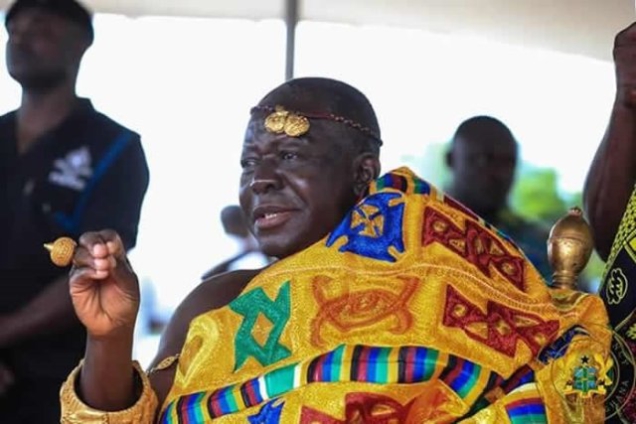Asantehene, Otumfuo Osei Tutu II has asked teachers, the Education and Employment Ministries to resort to dialogue to reduce industrial actions.
He said when such strike actions occur, not only are students at the receiving end, but the country's educational system in general, is affected.
“It does get truly disconcerting when industrial relations break down in education and teachers abandon their classrooms and lecture halls. But those who suffer in this are the innocent children; the distress caused to students in any industrial action is incalculable.”
Addressing the 6th National Quadrennial GNAT Conference in Kumasi on Monday, the Asantehene therefore urged policymakers to ensure that teachers feel valued.
“I urge you all to focus your minds on the need for an improved formula of negotiations and consultations which would minimise, if not eliminate, any recourse to industrial action and harmful consequences upon our children. As we seek the best from our teachers, so are our teachers must be made to feel truly valued,” he said.
Though impressed by the positive impacts of Free Senior High School, the overlord of the Ashanti Kingdom wants Ghana’s educational system streamlined to stimulate creativity and innovation.
“In the new digital age, Asia is out there competing with the West for global economic superiority. They have done this through an educational system designed to stimulate creativity and innovation to produce creators and inventors.
“By contrast, our educational system has turned us into a vastly expanding market place of consumers of other people’s creation. Painful as it may be, we have to start asking why we are still crawling through mounds of refuse unable to solve simplest environmental challenges on mother earth.”
“We ought to change to an educational system focused on creativity and innovation. A system geared to produce inventors and creators, so our nation too can find its proper place in this age of Science and Technology,” Asantehene added.
Keynote Speaker and former Vice-Chancellor of the University of Cape Coast, Reverend Professor Emmanuel Adow Obeng, admitted that continuous use of force by the Ghana National Association of Teachers (GNAT) over the period to drum home their demands from government, has yielded no results.
According to him, such politically tainted approaches are no longer effective. Rev. Prof. Adow Obeng therefore urged teacher associations to hone their negotiation skills.
“I wish to submit that, the way that would make the association reliable, vibrant and attractive, lies in knowledge creation and acquisition, effective and widespread use of technology, continuous professional development in all relevant areas of the association to enhance skills of members to negotiate, dialogue and perform at peak levels to become an essential part of any decision and policy-making process in the country,” he said.
Latest Stories
-
Top 20 Ghanaian songs released in 2024
8 minutes -
Beating Messi’s Inter Miami to MLS Cup feels amazing – Joseph Paintsil
22 minutes -
NDC administration will reverse all ‘last-minute’ gov’t employee promotions – Asiedu Nketiah
33 minutes -
Kudus sights ‘authority and kingship’ for elephant stool celebration
34 minutes -
We’ll embrace cutting-edge technologies to address emerging healthcare needs – Prof. Antwi-Kusi
1 hour -
Nana Aba Anamoah, Cwesi Oteng special guests for Philip Nai and Friends’ charity event
1 hour -
Environmental protection officers receive training on how to tackle climate change
1 hour -
CLOGSAG vows to resist partisan appointments in Civil, Local Government Service
2 hours -
Peasant Farmers Association welcomes Mahama’s move to rename Agric Ministry
2 hours -
NDC grateful to chiefs, people of Bono Region -Asiedu Nketia
2 hours -
Ban on smoking in public: FDA engages food service establishments on compliance
2 hours -
Mahama’s administration to consider opening Ghana’s Mission in Budapest
3 hours -
GEPA commits to building robust systems that empower MSMEs
3 hours -
Twifo Atti-Morkwa poultry farmers in distress due to high cost of feed
3 hours -
Central Region PURC assures residents of constant water, power supply during yuletide
3 hours

